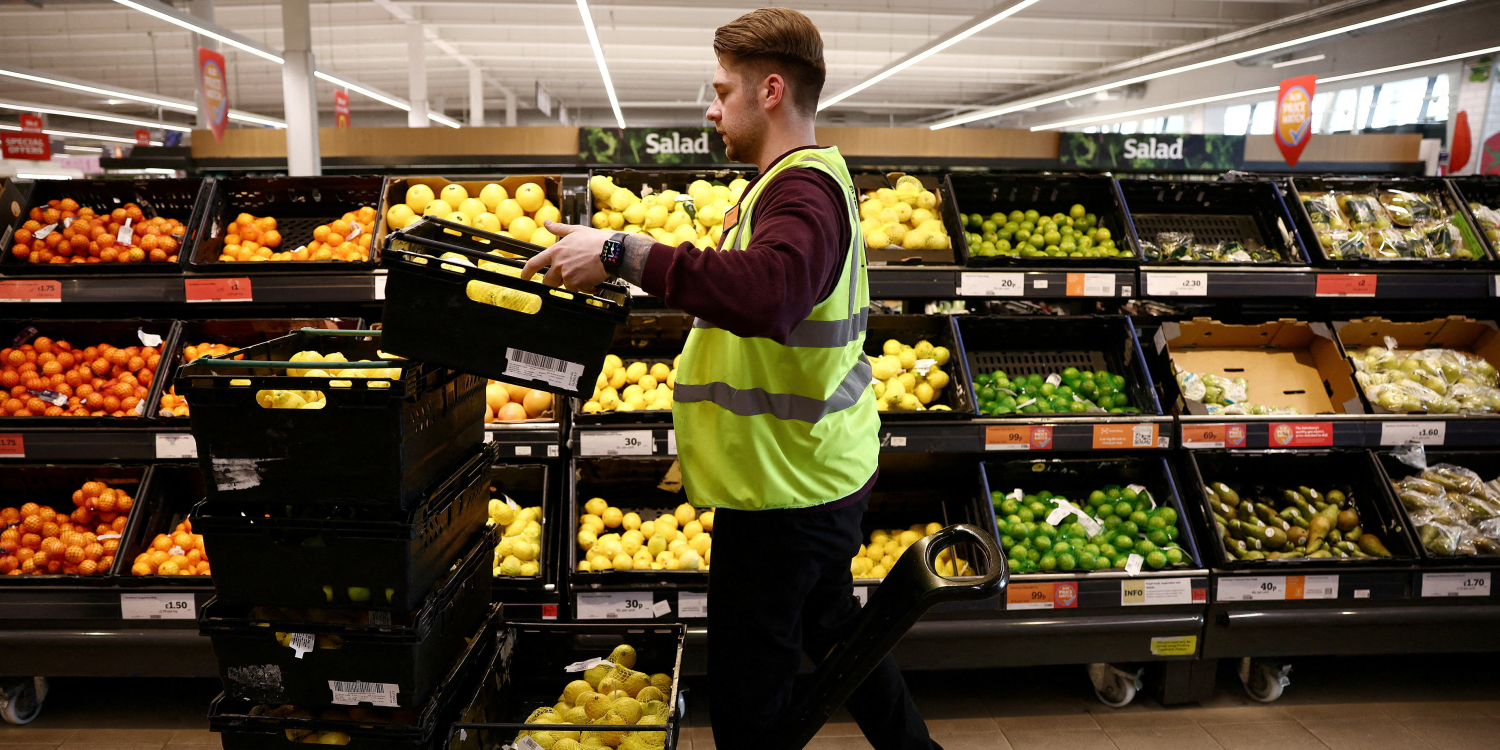Deal-hunting pulls UK grocery inflation to 14-month low

A continuing hunt for deals meant that the annual rise in UK grocery prices eased to a 14-month low in September, with budget retailers Aldi and Lidl continuing to take market share from some of the bigger players.
Grocery price inflation fell to 11% during the four weeks to 1 October, according to research firm Kantar.
That's down from 12.2% the preceding four weeks and the lowest rate of growth since July 2022.
The warmest September on record meant people were enjoying their summer favourites for longer this year, with sales of ice cream, burgers and dips rising 27%, 19% and 10%, respectively. Meanwhile early sales of festive categories were lower than usual, with sales of Christmas puddings and seasonal biscuits falling 14% and 29%, respectively.
“Grocery price inflation is still very high, but shoppers will be relieved to see the rate continuing to fall," said Tom Steel, straight insight director at Kantar.
"For the first time since last year, the prices of some staple foods are now dropping and that’s helping to bring down the wider inflation rate. Dairy was one of the categories where costs really shot up last autumn but the average price paid for a 250g pack of butter is now 16 pence less than 12 months ago.”
The stats show that the proportion of groceries bought through a promotional deal increased to 26.5% in the latest 12-week period – the highest since June 2022.
This hunt for value was evident in the market share results, with Lidl's market share rising 0.5 percentages points (pp) over the year to 7.6%, and Aldi gaining 0.6pp to 9.9%.
Tesco is still the biggest supermarket in the UK, with a 27.4% share, up 0.4pp, while Sainsbury's share rose 0.1pp to 14.8%. Asda's the third largest, saw its share sink 0.6pp to 13.7% while Morrisons fell 0.4pp to 8.6%.